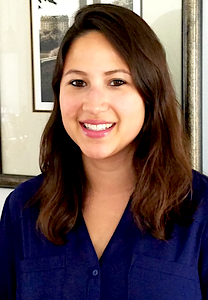Ph.D. candidate Tessa Nalven awarded National Research Service Award from NIH
A University of Rhode Island College of Health Sciences graduate student will examine factors related to alcohol and other drug use among people with multiple races, a study funded by an F31 grant from the National Institute on Drug Abuse.
Tessa Nalven, a Ph.D. candidate in the Department of Psychology, has been awarded the prestigious Ruth L. Kirschstein Predoctoral Individual National Research Service Award, funded by the National Institutes of Health. The two-year award intended to “enable promising predoctoral students with potential to develop into a productive, independent research scientists,” will fund Nalven’s study and research training while she works on finishing her doctorate.
Alcohol and other drug use is disproportionately high among people who belong to more than one racial group, Nalven uncovered while researching substance use among marginalized populations. However, she found few research studies to explain it.
“People who have two or more races are really high in substance use, compared to other racial and ethnic groups. Illicit substance use and problematic alcohol use were really high among them,” Nalven said. “My overall research interests are in substance abuse in marginalized populations, and being multiracial myself, I was curious to learn more about that.”
Nalven will study alcohol and substance use in multiracial young adults, age 18-25, the group with the highest rates of substance use. She will begin with a qualitative exploration, establishing focus groups to ask people their thoughts on substance use, and if there are unique factors related to being multiracial that are either protective against or be related to risk factors for substance use or alcohol use among the population. She suspects the racial discrimination, lack of belonging or social support and mental health concerns they face may contribute to substance use.
“There is not a strong theory about multiracial substance use at this point, but, by definition, they can’t be completely one race, they are from multiple racial backgrounds, so there is a lot of discrimination,” Nalven said. “We also talk a lot about belonging — whether or not they feel a sense of belonging in their different racial communities. Maybe there’s a marginalization there; they don’t particularly fit in either racial group. That’s why the focus group — to get the thoughts from several people who belong to multiple racial groups.”
Nalven will subsequently use the themes established by the focus groups as a basis to identify measures that assess for factors related to alcohol and substance use. She will craft a survey based on those findings for more than 100 multiracial young adults to further explore whether the factors identified in focus groups are significantly related to alcohol and substance use.
“I’m hoping to learn more about multiracial young adults and the challenges they face, as well as the strengths of the community,” Nalven said. “I want to find out what relates to substance use. Ultimately, I’d like to eventually develop an intervention using this information to guide what factors and what areas are important to intervene.”
She plans to begin the focus groups in the fall semester of 2021. The two-year NIDA award that will fund her study includes tuition assistance, payment for study participants and other expenses, as well as a research stipend.
“It really covers everything, which is nice. It allows me to really focus on my research,” she said. “They’re making an investment in my research and my training, because this is really a training grant, so they’re investing in me taking classes and doing my study.”
Throughout the two years, Nalven will work closely with URI faculty mentor, Psychology Assistant Professor Nichea Spillane, as well as research partners at Brown University and the University of Georgia. The F-31 award is partly the result of a year-long grant-writing workshop offered by faculty members in the Department of Psychology, which walks students through the complicated process of applying for research funding.
“A grant application is pretty involved; it takes pretty much a whole academic year. Tessa was funded on her first attempt, which is really rare. These are very competitive awards,” Spillane said, noting the training grant gives students a leg up on their careers. “The award elevates the students to another level. They have to do a year-long internship program at the end of our clinical program, external to the university. Having this award puts you at the top of the list, and really increases your chances for more funding and securing faculty jobs down the road. It really puts students in a great position.”

